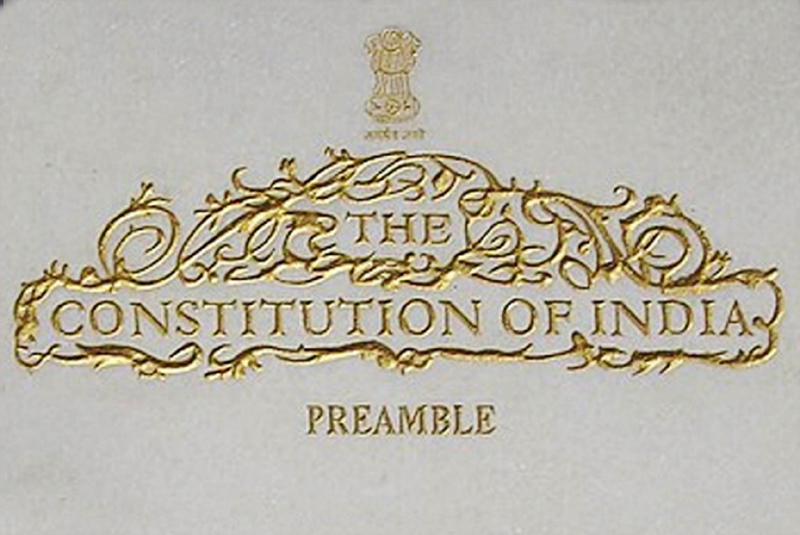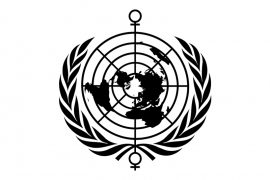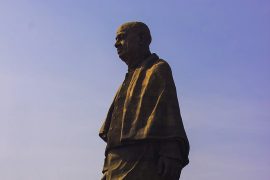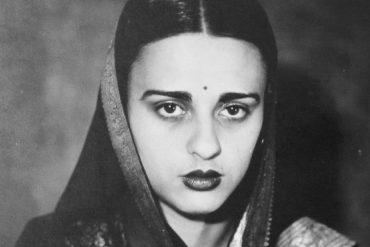Article 14 of the Indian Constitution states, “The State shall not deny to any person equality before the law or the equal protection of the laws within the territory of India.” In essence, the article guarantees equality for all citizens and non-citizens alike and insulates them from discrimination on the basis of caste, creed, sect, and religion.
In this context, the controversial Citizenship Amendment Act (CAA), enacted in 2019 and operationalised on 11 March 2024 through a notification by the Ministry of Home Affairs, requires scrutiny of its exclusionary objectives and discriminatory provisions targeting Muslims.
The CAA is an amendment to the Citizenship Act of 1955, which prohibits all illegal migrants within the territory of India from acquiring Indian citizenship. However, the 2019 Citizenship Amendment Act arbitrarily exempts some people from the status of illegal immigrants, which is applicable under the Passport Act of 1920 and Foreigners Act of 1946, and aims to fast-track their citizenship process.
The new provisions of CAA state that for people belonging to five specific faiths—Hindu, Christian, Jain, Parsi and Buddhist—whose status in India is illegal migrants, the government will rescind that status if they have crossed Indian borders from Pakistan, Afghanistan, and Bangladesh on or before 31 December 2014. Furthermore, these people must be minorities in their respective countries and had fled due to religious persecution under a theocratic state.
The CAA is predicated on religious lines and is unprecedented in the history of Independent India in inserting religion as a criterion to acquire citizenship. By excluding Muslims, the Act violates the secular, democratic and pluralistic principles enshrined in the constitutional framework.
The Ministry of Home Affairs says the legislation aimed to provide amnesty to around 30,000 illegal migrants residing within the country purely based on religious grounds and country of origin. It is disconcerting that the test of citizenship of a secular democratic country, enshrined in the preamble of the Constitution, is established by religion.
This discrimination is based on characteristics one cannot control, namely being born into a religion, race, caste, sect, creed, or country. The Modi administration has relentlessly set in motion a wheel of divisive political agenda centred on majoritarian appeasement and pseudo-nationalism ever since their ascend to power in the 2014 general elections.
Sympathisers of the amendment retrace their steps to the horrors of partition and the Two Nation Theory that divided India. Accentuating the claims are the atrocities perpetrated by Bangladesh’s Islamic radicals against the Hindus. Pakistan was perhaps the first nation-state founded on religion as the basis of nationhood. In contrast, the Indian counterparts reiterated their commitment to preserving the ancient civilisational ideals of a secular society.
The plight of minorities in Pakistan since partition, especially the Hindu population—comprising a paltry 1.96 million or 1.2 per cent of the total population—is well documented by Amnesty International, Minority Rights Group, Human Rights Watch and other international change agencies. It reveals the disgraceful human rights violations that could happen in a monolithic, theocratic state.
In both Pakistan and Bangladesh, atrocities against Hindus have escalated in recent decades in the form of forced conversions, oppression, executions by invoking the draconian blasphemy laws, scapegoating and social ostracising. The Hindu population in Bangladesh has alarmingly dwindled from 22 per cent, according to the official census of 1951, to 15 per cent in the 1991 census. It further depleted to 8.5 per cent in 2011.
Forfeiting secular principles of universal brotherhood and peaceful coexistence with diverse ethnic and religious minorities, Pakistan has transitioned from a Muslim homeland into an Islamic State. In contemporary India, minority Muslims are increasingly targeted. Right-wing fanatics are inciting communal hatred by escalating violence and brutalities against them.
Reciprocal crimes are not the solution to historical aberrations. The glory of a nation is built on sacrosanct foundations of the inviolability of human values. Is India treading the dangerous terrain of ethno-nationalism and regressing into a ‘Hindu Pakistan’?
The fundamental premise of Article 14 is that human beings are created equal and deserve to be treated with equal opportunity. However, it also permits differentiation and classification since, socio-economically and socio-culturally, people are different, and, therefore, a universal application of the article is unlikely to produce the desired outcomes.
To put things into perspective, people situated alike are to be treated alike, and those unequally situated are to be considered in an unlike manner. The framers of the Indian Constitution were inspired by the British idea of the rule of law to define equality before the law and the 14th Amendment of the United States Constitution to formulate the contents of Article 14, pertinent to equal protection of the law. The US Supreme Court relied on a doctrine of ‘reasonable classification‘ for such times, and the State might impinge on the equality clause, such as under-inclusion in the CAA statute. Justice William. R. Ray wrote in the 1910 case of Southern Railway Co. vs Greene:
“While reasonable classification is permitted, without doing violence to the equal protection of the laws, such classification must be based upon some substantial distinction, bearing a reasonable and just relation to the things in respect to which, such classification is imposed; and the classification cannot be arbitrarily made without any substantial basis. Arbitrary selection, it has been said, cannot be justified by calling it classification.”
Therefore, an intelligible differentia that distinguishes persons or things that are grouped together from those excluded from the group and the rational nexus of the differentia to the just objective of the statute forms the explicative basis of such classification. The third test of classification under Article 14 is Arbitrariness, in which case the classification is rendered invalid.
In the light of intelligible differentia and rational nexus clauses, the CAA is plagued by illogical inconsistencies in its purported humanitarian aims. If the intelligent differentia behind the grouping of persecuted minorities of five faiths in Pakistan, Afghanistan, and Bangladesh, why exclude Ahmadiyya in Pakistan and Hazaras in Afghanistan, who are minorities in their respective countries and endure oppression and persecution as much as Hindus and Christians in Pakistan and Hindus and Sikhs in Afghanistan?
If the contention is to include people with similar ethnicities in undivided India, why include Afghanistan and exclude Myanmar? Or if the debate is around neighbouring states with a majority state religion persecuting minorities, which incidentally is Islam for the chosen three nations, why leave out Sri Lanka and Myanmar? If, by virtue of sovereign policy, the government chose three nations, yet within the persecuted categories, the Act partisanly extends empathy to some religions and antipathy to one particular faith, then it constitutes palpable Arbitrariness.
Sri Lankan Tamils, Tibetan political refugees and Rohingya Muslims in Myanmar also suffer persecution under theocratic states. The UNHCR has recognised the Rohingya community as the single largest refugee population in the world, who were subjected to genocidal levels of oppression.
If Hindu nationalism is the overriding sentiment of the incumbent government, the Sri Lankan Tamil community, who are Hindus, deserve as much amelioration as the Hindus in Pakistan, Afghanistan, and Bangladesh. Are they any different from the ones permitted by the three shortlisted Islamic nations as a matter of policy? If persecution is the defining clause, then persecution can take myriad forms and not just be limited to religion in the three Muslim-majority nations. Atheists and agnostics are persecuted in these countries, and so are transgender people and homosexuals.
The deadline date of 31 December 2014 for eligibility under CAA provisions is again problematic and illogical to the extent that the government assumes illegal migrants who enter India after the cut-off date are either not persecuted or less persecuted. For argument, a Christian fleeing persecution in Sri Lanka and arriving in India has to reside continuously for 11 years before filing for citizenship. However, a Christian in India escaping state oppression from Pakistan and Afghanistan could do it in 5 years. Isn’t it inequity and lack of sound judgment?
Muslim exclusion in the CAA could lead to dire consequences and future ramifications of quid pro quo retaliation from Pakistan, Afghanistan, and Bangladesh of remaining minorities in these countries. It should not be forgotten that Bangladesh played a pivotal role in the clampdown of insurgency in Northeast India.
For its defence and security, any sovereign nation is entitled to retain a database of its citizens to prevent infiltrators and thwart insurgencies by non-state actors across its national borders. The National Registry of Citizens (NRC) was conducted in the State of Assam, home to the maximum number of illegal migrants in India, according to UNHCR, who infiltrate from Bangladesh through its 400 kilometres of primarily porous riverine borders.
The NRC report was unpalatable to the incumbent BJP government as it had more than 1.2 million Hindus classified as illegal and stateless. The crafty administration realised the threat of losing such a massive vote bank. It, therefore, sought an amendment to the Citizenship Act to exclude their mortal enemies from the list, Muslims, and attain their long cherished vicious dream of a homogenous ‘Hindu Rashtra,‘ envisaged by the Saffron Brigade’s fascist idealogue M.S. Golwalkar, and espoused in his extremist treatise, We or Our Nationhood Defined.
However, the CAA is not an egalitarian application of the privileges of Indian citizenship to the five enlisted communities. The Northeastern States are guarded by the Inner Line Permit system under the 6th Schedule of the Constitution; it mandates that Indian citizens residing outside the states get a travel document for extended stays in those regions.
Illegal migrants in these regions are not entitled to the application of CAA provisions even if they belong to the members of the five faiths eligible for amnesty. The same government, under the pretext of national coherence, legal discrimination and removing barriers to social development, have unceremoniously abrogated Article 370, thus scrapping special autonomy to the Muslim-majority State of Jammu & Kashmir. Why is the Inner Line Permit system considered non-discriminatory to the BJP slogan of one country, one tax, one election and one law?
India doesn’t have a comprehensive Refugee law as it is not a signatory to the UN Refugee Convention of 1951 or its 1967 Protocol. India follows a standard operating procedure of 2014, which is a clearance given by the Intelligence Bureau on being convinced that a specific minority is persecuted in their home country. The principle of non-refoulment under International Human Rights Law is then applied to ascertain whether they threaten the sovereignty and integrity of the country. Subsequently, a permit is awarded. In the absence of a Refugee Law, India does not demarcate between an illegal migrant and a refugee, based on the 2003 Citizenship (Amendment) Act.
All residents outside the purview of an Indian passport, Overseas Citizen of India (OCI) card or other travel document are deemed illegal immigrants. How will the 1 million odd Hindu refugees in the State of Assam, who migrated from Bangladesh, prove that they are victims of religious persecution, according to the CAA, since they came in 1971 and don’t possess any supporting documents for proof? What corroborative evidence do these illegal migrants have to ascertain that they had left Pakistan, Afghanistan, and Bangladesh due to religious persecution and not pursuing economic prospects?
Narendra Modi rose to power in 2014, riding a wave of anti-corruption, progress and inclusive growth. Under his regime, India’s ‘soft power’—built over decades as the world’s largest post-independence democracy and millennium-old cosmopolitan culture that accommodated eclectic thoughts and divergent views—is gravely undermined by an almost tyrannical crackdown to suppress free speech and expression by the current government.
Dissenting voices and dissident tribes are an anathema in Modi’s New India; the massive PR machinery quickly deprecates critics and anti-establishment protesters as ‘anti-nationals’ and ‘urban-naxals.’
Institutions such as the Enforcement Directorate (ED) and Central Bureau of Investigation (CBI) are transformed into repressive organs of the State to witch-hunt political opponents and public intellectuals who criticise the government. Even satirists, social activists, and students in progressive citadels of higher learning are not spared. Most mainstream media, which has a pivotal role in nation-building, regarded as the ‘Fourth Estate,’ are reduced to being stooges of the government. Behind the devious veil of national interest, intolerance and bigotry prevails.
The timing of the CAA rules notification before the 2024 general elections is perfect. It is a diversion from core issues that confront the nation such as youth unemployment, inflation, environmental degradation, economic inequality, farmer distress, declining private investments, electoral bonds scam, etc. The CAA helps them capitalise on the emotional vulnerabilities of a majoritarian population.
Crony capitalism is endemic; monopolies and duopolies control free market systems in a way that could dismantle competition and efficiency. The slanted political agenda of polarising the nation, customarily at the onset of elections, takes precedence over a compelling policy manifesto for a robust economic revival and growth.
Elie Wiesel, the Holocaust survivor of Auschwitz and Buchenwald concentration camps, encapsulates poignantly the depravation of human morality in the trenchant verses:
The opposite of love is not hate, it’s indifference. The opposite of art is not ugliness, it’s indifference. The opposite of faith is not heresy, it’s indifference. And the opposite of life is not death, it’s indifference.
-30-
Copyright©Madras Courier, All Rights Reserved. You may share using our article tools. Please don't cut articles from madrascourier.com and redistribute by email, post to the web, mobile phone or social media.Please send in your feed back and comments to editor@madrascourier.com











